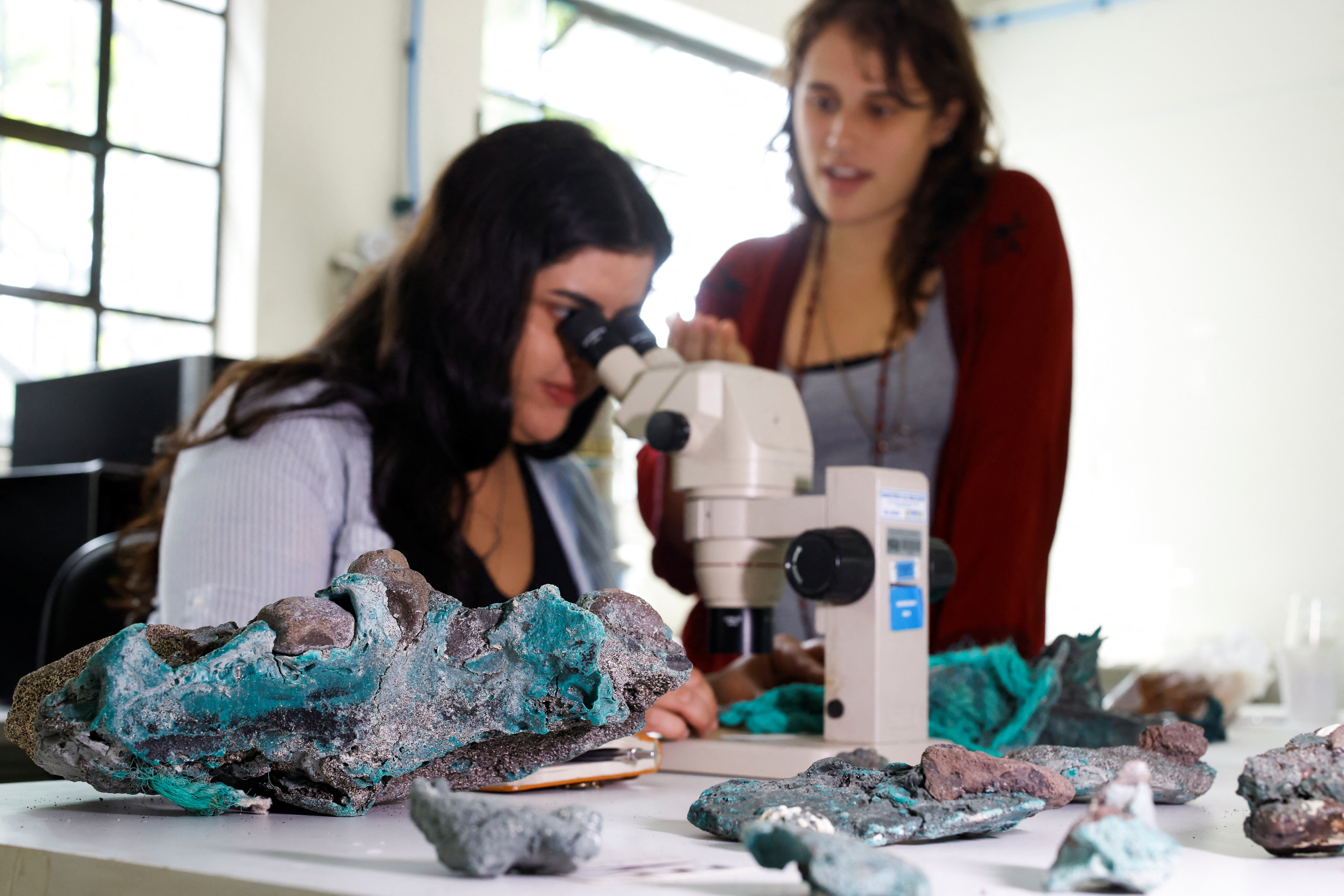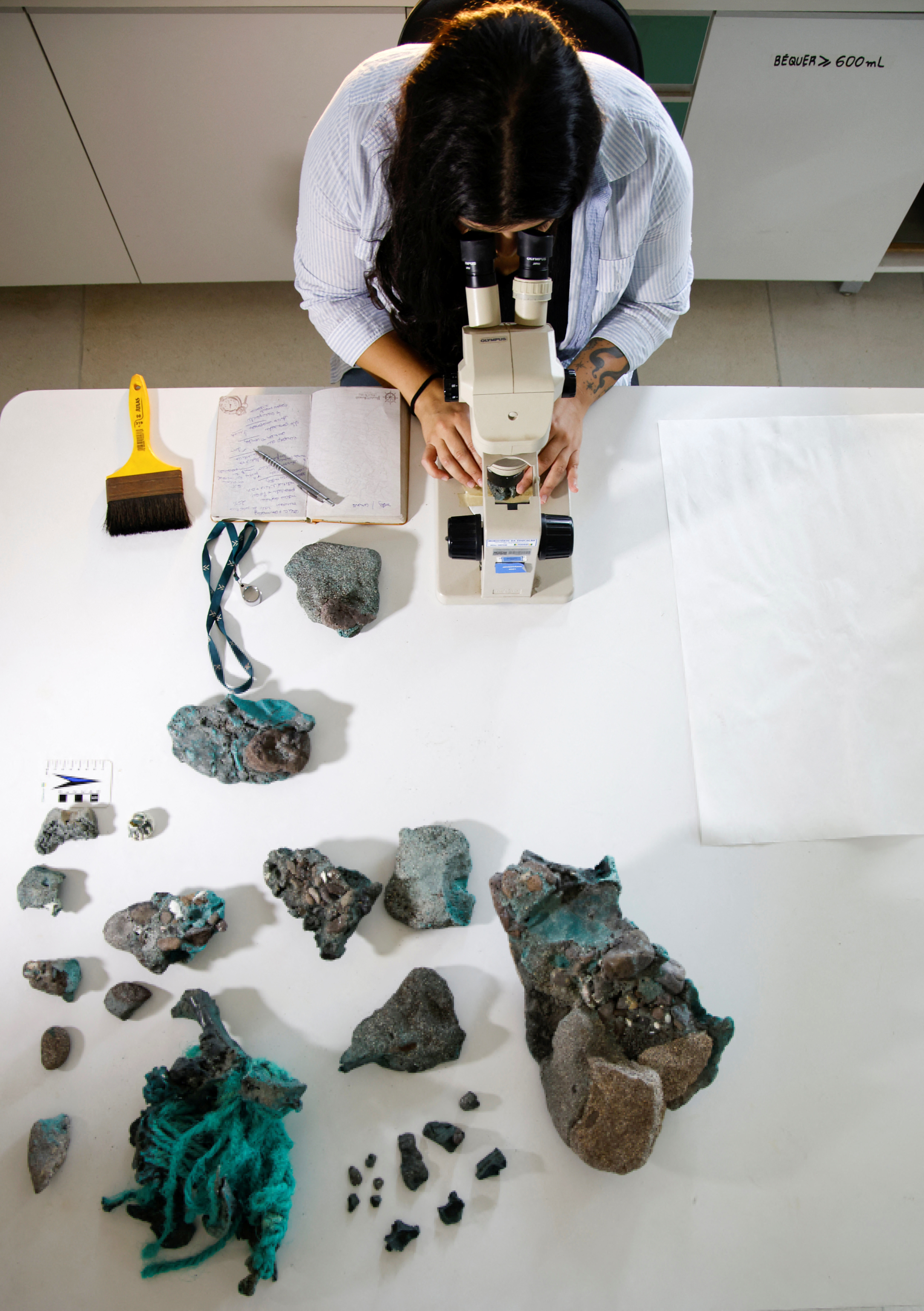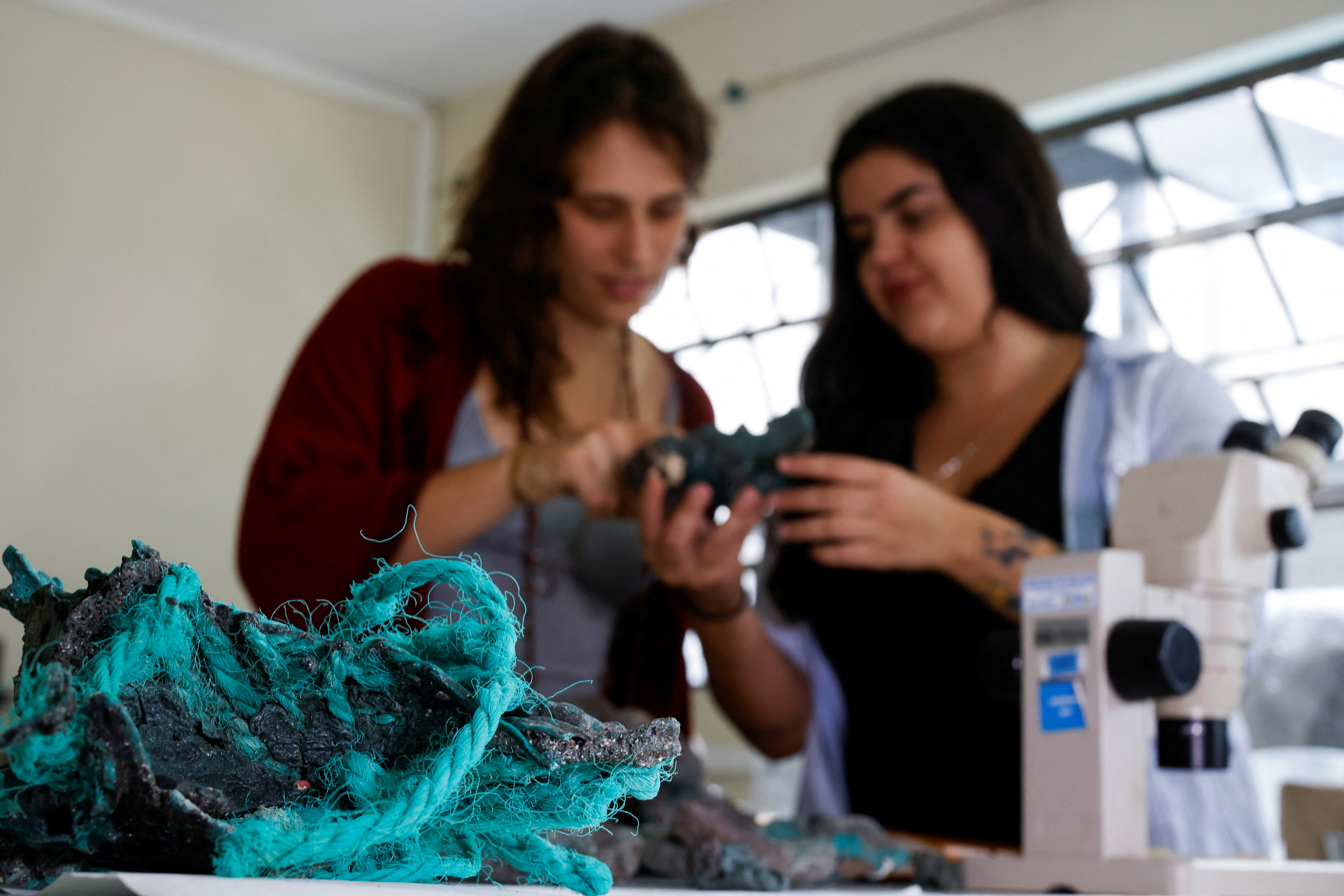
Identification of rocks from plastic trash on the remote volcanic island of Trindade Brazilprotected reserve of sea turtles, has caused alarm in the ranks of the scientific community.
Molten plastic stuck in the rocks of an island located 1140 kilometers from the state of Espirito Santo, which, according to researchers, is a sign of the increasing impact of human activity on the Earth’s geological cycles.

“This is something new and scary at the same time, because pollution has reached the geologysays Fernanda Avelar Santos, a geologist at the Federal University of Parana.
She and her team performed chemical tests to determine the type of plastic that had become stuck in the rocks over the years.
“We found that pollution mostly from fishing nets, which are very common litter on the beaches of Tridente. Nets are washed away by sea currents and accumulate on the shore. As the temperature rises, this plastic melts and integrates into the natural material of the beach,” explains Santos.

The island of Tridante is one of the important places for the protection of the green sea turtle or Chelonia mydas, which comes here by the thousands to lay their eggs. The only people who inhabit Tridante are the Brazilian Navy, who maintain a base on the island and guard the turtle nests.
“The place where we found the plastic samples is a permanently protected area in Brazil, not far from where sea turtles lay their eggs,” says Santos, adding that the find raises questions about the heritage of humans on the planet.

“We talk so much about the Anthropocene era, and here it is,” she notes, referring to the geological era defined by human influence on the geology and ecosystems of the Earth.
“Pollution, debris in the sea, and plastic thrown into the oceans are becoming geological material… preserved in the Earth’s geological record,” he concludes.
Source: CNN
Source: Kathimerini
Ashley Bailey is a talented author and journalist known for her writing on trending topics. Currently working at 247 news reel, she brings readers fresh perspectives on current issues. With her well-researched and thought-provoking articles, she captures the zeitgeist and stays ahead of the latest trends. Ashley’s writing is a must-read for anyone interested in staying up-to-date with the latest developments.